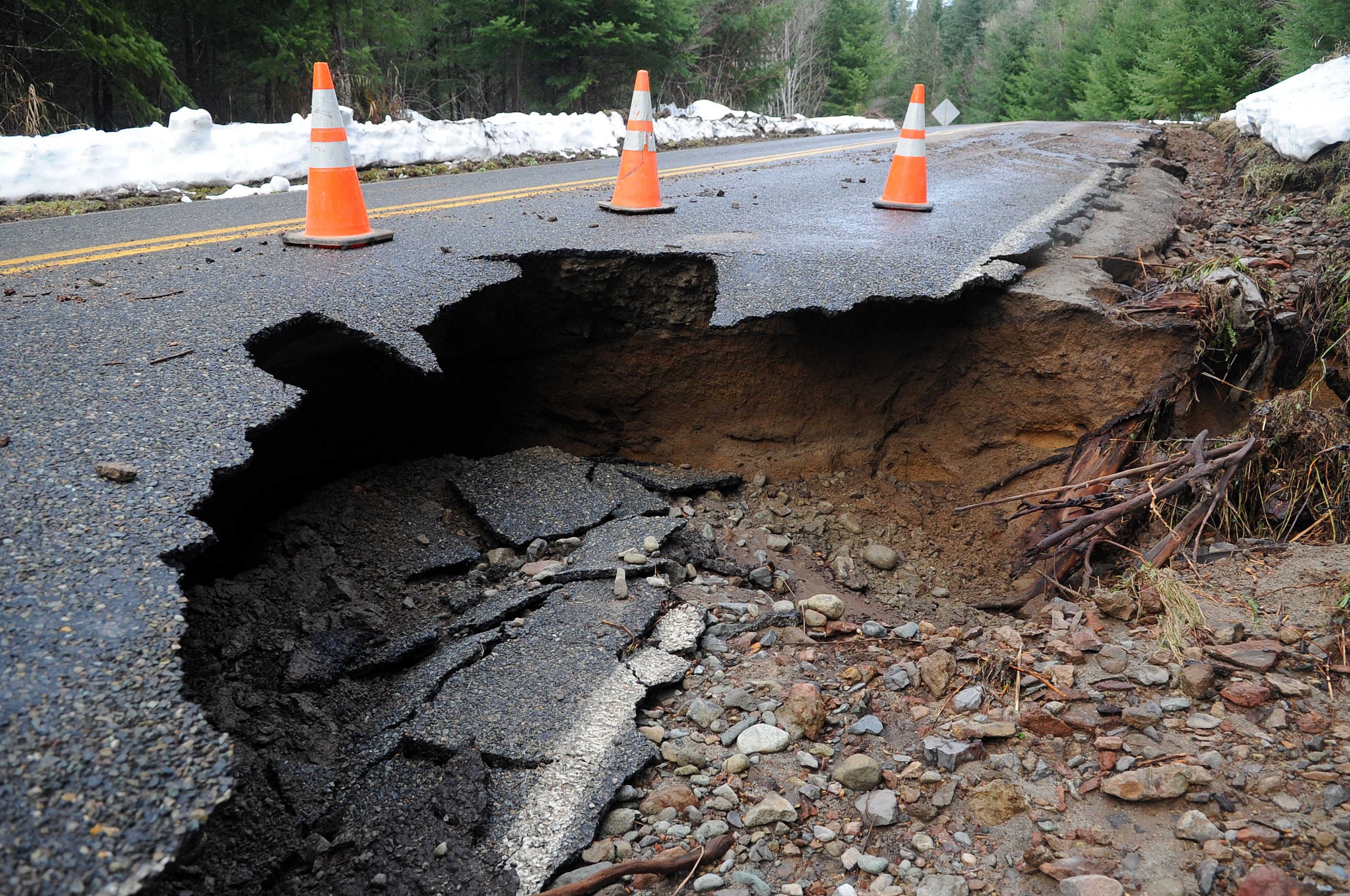
You may not want to think a sinkhole will one day suck up your home. But, it can happen and the costs that are left behind might even seem worse. Therefore, it’s important that you prepare for unfortunate disasters like this, know what to do if one strikes and make sure you’re properly insured.
Many states are vulnerable to sinkholes, although some, like Florida, are more so than others. Sinkholes are essentially cavities in the land surface caused by the sudden collapse or settlement of the land. They happen when the action of water on limestone or other rock creates underground voids. Moving water dissolves bits of the rock and takes it away. This enlarges cracks and natural pores in the bedrock. The entire process, over time, forms caves, and cavities which cause the land surface to give way, filling the voids in.
Sinkhole Warning Signs
While many sinkholes don’t give you any warning, there are some that do. Things to look for include cracks in the foundation, dropping trees, slanted doors, or voids, cracks, or unexplained water pools on your land.
If your house shifts or sinks because of ground cover collapse, or if your property has sinkhole activity, there are some steps you should take immediately including:
- Make sure to take the needed steps to ensure the safety of everyone who comes on your property.
- Tape off, rope or install fencing around the property and sinkhole to warn people, otherwise you could face a lawsuit if someone gets injured.
- Remove or secure your personal property if it’s safe to do so.
- Be ready to evacuate your house.
- Call your independent insurance agent.
- Call local authorities like the county or city building department.
- Consider consulting with a lawyer who handles claims for sinkholes.
If your homeowners policy covers catastrophic ground collapse, it may only cover the costs of damage for the following reasons:
- A sudden ground cover collapse.
- A cavity in the ground cover that you can see.
- Structural building damage which includes the foundation.
- Your insured structure being ordered vacated and condemned by the government agency.
If a sinkhole damages your home but doesn’t meet the criteria above, your insurance company might not pay for this damage unless you have separate coverage for sinkholes.
It’s important you ensure your property and structure are insurable. Make sure you include sinkhole coverage in your homeowner’s policy. If you don’t have this coverage, you may want to consider a separate coverage for this reason. Speak to us here at bolt insurance Agency to learn more about sinkhole insurance coverage. Customer Service: 1-800-216-4171